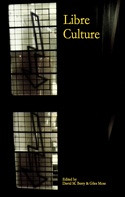Eva Illouz: Why Love Hurts (2012)
Filed under book | Tags: · desire, emotion, freedom, love, men, power, sexuality, sociology, women

“Few of us have been spared the agonies of intimate relationships. They come in many shapes: loving a man or a woman who will not commit to us, being heartbroken when we’re abandoned by a lover, engaging in Sisyphean internet searches, coming back lonely from bars, parties, or blind dates, feeling bored in a relationship that is so much less than we had envisaged – these are only some of the ways in which the search for love is a difficult and often painful experience.
Despite the widespread and almost collective character of these experiences, our culture insists they are the result of faulty or insufficiently mature psyches. For many, the Freudian idea that the family designs the pattern of an individual’s erotic career has been the main explanation for why and how we fail to find or sustain love. Psychoanalysis and popular psychology have succeeded spectacularly in convincing us that individuals bear responsibility for the misery of their romantic and erotic lives. The purpose of this book is to change our way of thinking about what is wrong in modern relationships. The problem is not dysfunctional childhoods or insufficiently self-aware psyches, but rather the institutional forces shaping how we love.
The argument of this book is that the modern romantic experience is shaped by a fundamental transformation in the ecology and architecture of romantic choice. The samples from which men and women choose a partner, the modes of evaluating prospective partners, the very importance of choice and autonomy and what people imagine to be the spectrum of their choices: all these aspects of choice have transformed the very core of the will, how we want a partner, the sense of worth bestowed by relationships, and the organization of desire.
This book does to love what Marx did to commodities: it shows that it is shaped by social relations and institutions and that it circulates in a marketplace of unequal actors.”
Publisher Polity, 2012
ISBN 0745661521, 9780745661520
300 pages
review (David Wolpe, Los Angeles Review of Books)
review (Jacqui Gabb, LSE Review of Books)
Wendy Hui Kyong Chun: Control And Freedom: Power And Paranoia in the Age of Fiber Optics (2006)
Filed under book | Tags: · freedom, internet, pornography

“How has the Internet, a medium that thrives on control, been accepted as a medium of freedom? Why is freedom increasingly indistinguishable from paranoid control? In Control and Freedom, Wendy Hui Kyong Chun explores the current political and technological coupling of freedom with control by tracing the emergence of the Internet as a mass medium. The parallel (and paranoid) myths of the Internet as total freedom/total control, she says, stem from our reduction of political problems into technological ones.
Drawing on the theories of Gilles Deleuze and Michel Foucault and analyzing such phenomena as Webcams and face-recognition technology, Chun argues that the relationship between control and freedom in networked contact is experienced and negotiated through sexuality and race. She traces the desire for cyberspace to cyberpunk fiction and maps the transformation of public/private into open/closed. Analyzing “pornocracy,” she contends that it was through cyberporn and the government’s attempts to regulate it that the Internet became a marketplace of ideas and commodities. Chun describes the way Internet promoters conflated technological empowerment with racial empowerment and, through close examinations of William Gibson’s Neuromancer and Mamoru Oshii’s Ghost in the Shell, she analyzes the management of interactivity in narratives of cyberspace.
The Internet’s potential for democracy stems not from illusory promises of individual empowerment, Chun argues, but rather from the ways in which it exposes us to others (and to other machines) in ways we cannot control. Using fiber optic networks—light coursing through glass tubes—as metaphor and reality, Control and Freedom engages the rich philosophical tradition of light as a figure for knowledge, clarification, surveillance, and discipline, in order to argue that fiber-optic networks physically instantiate, and thus shatter, enlightenment.”
Publisher MIT Press, 2006
ISBN 0262033321, 9780262033329
352 pages
PDF (updated on 2019-10-10)
Comment (0)David M. Berry, Giles Moss (eds.): Libre Culture: Meditations on Free Culture, 2nd ed. (2008)
Filed under book | Tags: · code, commons, copyleft, creative commons, critical theory, floss, free culture, free software, free speech, freedom, intellectual property, open hardware, open source, software, technology

“Libre Culture is the essential expression of the free culture/copyleft movement. This anthology, brought together here for the first time, represents the early groundwork of Libre Society thought. Referring to the development of creativity and ideas, capital works to hoard and privatize the knowledge and meaning of what is created. Expression becomes monopolized, secured within an artificial market-scarcity enclave and finally presented as a novelty on the culture industry in order to benefit cloistered profit motives. In the way that physical resources such as forests or public services are free, Libre Culture argues for the freeing up of human ideas and expression from copyright bulwarks in all forms.”
Publisher Pygmalion Books, Winnipeg, 2008
Res Divini Juris Libre Commons Licence
172 pages
via archive.org
PDF, PDF (updated on 2017-10-25)
Comment (1)
